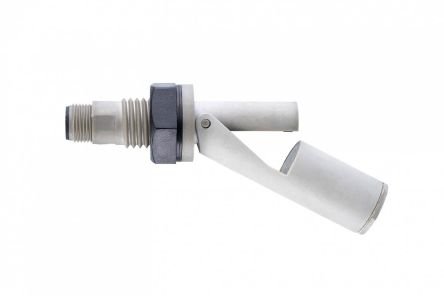Industrial processes and equipment rely heavily on precision, timely responses, and automated systems. In this interconnected mesh of machinery and technology, small components often play surprisingly significant roles. One such unsung hero of the industrial world is the float switch. Though modest in size, its importance in ensuring smooth operations is paramount. In this article, we unmask the pivotal role of float switches and delve deep into how they contribute to the success of various industries.
Demystifying the Float Switch
Before plunging into its significance, it’s essential to understand what a float switch is and how it functions. Essentially, a float switch is a type of liquid level sensor. It detects the level of liquid within a tank or vessel and sends signals, typically to activate or deactivate pumps or to raise alarms. Depending on the specific requirement, the float switch can either signal when the liquid reaches a predetermined high or low level. The core component, as the name suggests, is the float – this rises and falls with the level of the liquid it’s immersed in, thereby activating a switch at the desired level.
Enabling Automation: The Heartbeat of Modern Industry
Streamlined Operations: One of the prime benefits of using float switches in industrial setups is automation. For industries that rely on specific liquid levels for their processes, manual monitoring is neither feasible nor efficient. Here, the float switch becomes indispensable. By providing real-time feedback and triggering necessary actions, it ensures that industrial processes remain uninterrupted and work at optimum efficiency.
Preventing Catastrophes: In environments where overflows or drying up of tanks can result in catastrophes – think chemical plants or wastewater treatment facilities – the float switch acts as a sentinel. By signaling an alarm or cutting off processes when liquid levels breach safe limits, float switches can prevent potential disasters, saving both lives and resources.
Diverse Applications: One Size Fits All?
Float switches are versatile and find applications across a myriad of industries. While their basic function remains consistent, the specific needs and challenges of each industry often necessitate specialized designs.
- Water Treatment Plants: Ensuring a consistent supply of water and preventing overflows is critical in water treatment facilities. Float switches are used to maintain water levels, ensuring tanks neither overflow nor run dry.
- Fuel Industries: In fuel tanks and containers, monitoring the level of liquid is crucial for both operational and safety reasons. Here, float switches play a pivotal role, ensuring that fuel is replenished timely and overflow scenarios are averted.
- Food and Beverage Industry: In brewing or other liquid-based food production processes, maintaining specific liquid levels is crucial for quality control. Float switches, in this context, guarantee consistency and quality in production.
- Enrgtech and The World of Float Switches: Recognizing the importance of this vital industrial component, companies like Enrgtech have stepped up to provide an array of float switches tailored for various industries. With a keen focus on quality, innovation, and meeting industry-specific needs, Enrgtech stands as a beacon for industries seeking the best in float switch technology.
The Environmental Edge
In today’s world, where sustainability is no longer an afterthought but a necessity, float switches contribute subtly yet significantly. By ensuring efficient liquid level management, they prevent wastage. Especially in industries where the liquid is a precious resource, such as water or expensive chemicals, this not only means economic savings but also a reduced environmental footprint.
Future Trends: The Evolving Role of Float Switches
With the rise of the Internet of Things (IoT) and smarter industries, the role of the float switch is not static. As industries evolve, so do their requirements. Modern float switches are expected to be more than just on-off devices. Integration with smart systems, providing analytics, predictive maintenance signals, and compatibility with digital control systems are some of the trends shaping the future of float switch technology.
In Conclusion
While they might not grab headlines or be the subject of industrial lore, float switches are undeniably cornerstones of industrial success. Their role in ensuring seamless operations, preventing mishaps, and contributing to sustainable practices is pivotal. As industries continue to evolve, and as companies like Enrgtech remain at the forefront of innovation, the humble float switch is set to play an even more significant role in the tapestry of industrial achievements.

